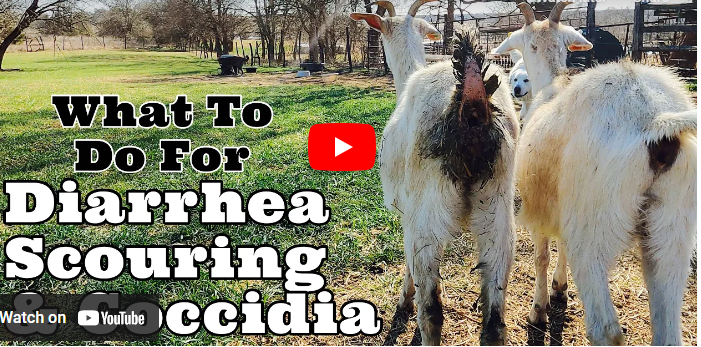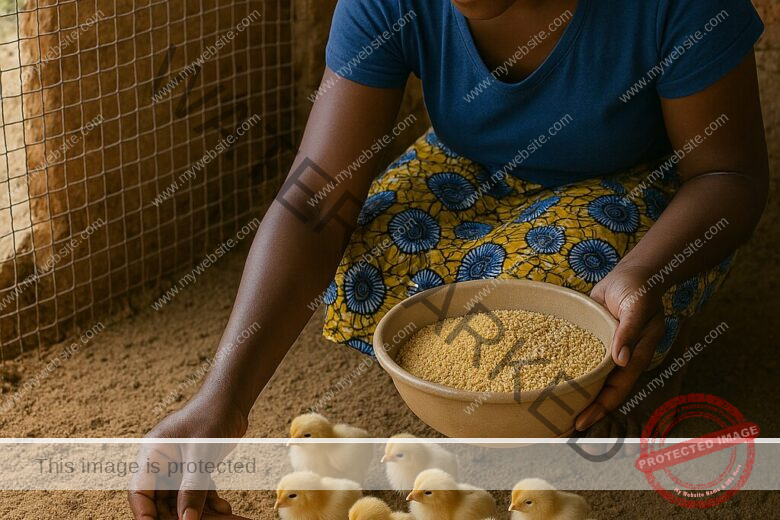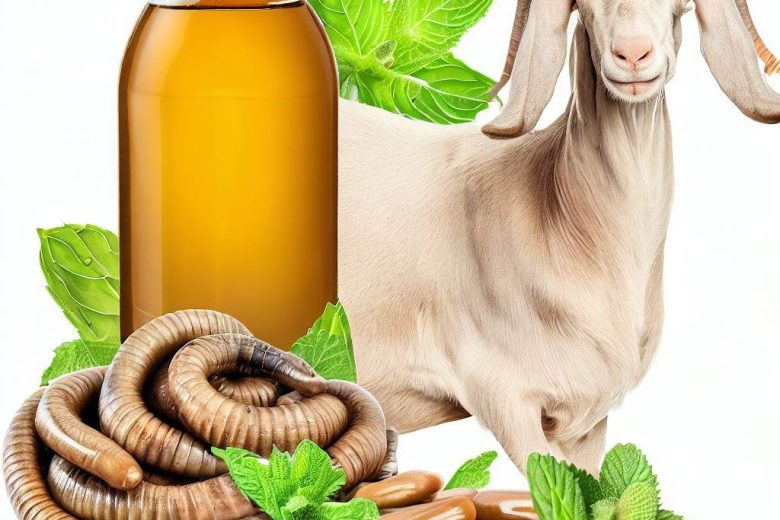Goats are known for their hardiness and adaptability, but they can still suffer from various health issues. One common ailment that affects goats, especially young ones, is coccidiosis.
Coccidiosis in goats is a parasitic disease caused by the ingestion of coccidia oocysts, resulting from poor management practices and unsanitary conditions. It manifests through symptoms such as diarrhea, weight loss, and lethargy, and can be treated with anticoccidial medications, supportive care, and preventive measures like maintaining hygiene and providing proper nutrition.
In this article, we will delve into the causes, symptoms, and treatment of coccidiosis in goats, providing valuable insights for goat owners and farmers.
Coccidiosis in Goats: Causes, Symptoms, and Treatment
Coccidiosis is a parasitic disease caused by microscopic organisms called coccidia. These organisms belong to the Eimeria genus and can affect various animal species, including goats. The disease primarily affects the intestinal tract, leading to significant health issues if left untreated.
Read Also: Albon for Goats [All You Should Know]
Causes of Coccidiosis in Goats
Coccidiosis in goats is mainly caused by poor management practices and unsanitary conditions. The primary source of infection is through the ingestion of coccidia oocysts present in contaminated feed, water, or feces.
Stressful conditions, overcrowding, and inadequate nutrition can weaken a goat’s immune system, making them more susceptible to coccidiosis.
Symptoms of Coccidiosis
The symptoms of coccidiosis can vary depending on the severity of the infection. Common signs include diarrhea (which may contain blood), loss of appetite, weight loss, lethargy, dehydration, and rough hair coat. Goats affected by coccidiosis may also exhibit hunched posture and show signs of abdominal pain.
Read Also: Miscarriage In Goats & Sheep [Signs, Causes, and How to Prevent]
Diagnosis and Prevention
To diagnose coccidiosis, a veterinarian will perform a fecal examination to detect the presence of coccidia oocysts.
Preventing coccidiosis involves implementing good management practices such as maintaining clean and dry living conditions, providing adequate nutrition, and avoiding overcrowding. Regular deworming and routine fecal checks are essential preventive measures.
Treatment Options
When coccidiosis is diagnosed, prompt treatment is necessary to prevent further complications. Various anticoccidial medications are available, including sulfa drugs, amprolium, and toltrazuril.
The specific treatment regimen will depend on the severity of the infection and the veterinarian’s recommendation.
Read Also: Miscarriage in Cows [Signs, Causes, and How to Prevent]
Nutritional Management
Proper nutrition plays a crucial role in preventing coccidiosis in goats. Providing a balanced diet rich in vitamins and minerals strengthens the goat’s immune system, making them more resilient to coccidia.
Ensuring access to clean and fresh water is also essential for maintaining hydration and overall health.
Maintaining Hygiene and Sanitation
To minimize the risk of coccidiosis, it is vital to maintain high standards of hygiene and sanitation. Regularly clean and disinfect pens, feeders, and water troughs. Proper manure management, including regular removal and composting, can significantly reduce the coccidia load in the environment.
Read Also: Why Is My Broiler Chicken Coughing? [Causes and Treatment]
Importance of Isolation and Quarantine
When introducing new goats to an existing herd, it is crucial to practice proper isolation and quarantine procedures. This helps prevent the spread of coccidiosis and other contagious diseases.
New goats should be kept separate from the main herd until they have undergone thorough health checks.
Supporting the Immune System
Boosting the immune system of goats is essential for preventing and managing coccidiosis. Providing adequate nutrition, minimizing stress, and avoiding sudden environmental changes are effective ways to support the immune system.
Also, regular vaccinations and strategic deworming can help strengthen the goat’s defense against coccidia.
Natural Remedies for Coccidiosis
Some goat owners prefer to explore natural remedies to complement conventional treatments. While natural remedies may have anecdotal benefits, it is essential to consult with a veterinarian before using them.
Examples of natural remedies include herbal supplements, probiotics, and essential oils with antiparasitic properties.
Vaccination as a Preventive Measure
Vaccination can be an effective preventive measure against coccidiosis. Consult with a veterinarian to determine if vaccination is suitable for your goats. Vaccines can provide immunity against specific strains of coccidia, reducing the risk of infection and the severity of the disease.
Coccidiosis in Adult Goats
Although coccidiosis is commonly associated with young goats, adult goats can also be affected. Older goats with weakened immune systems or underlying health issues are more susceptible to coccidia.
Regular monitoring, preventive measures, and prompt treatment are crucial to managing coccidiosis in adult goats.
Impact on Goat Farming
Coccidiosis can have a significant impact on goat farming operations. Infected goats may experience stunted growth, decreased milk production, and increased mortality rates. Managing coccidiosis effectively is essential for maintaining a healthy and productive goat herd.
Best Practices for Coccidiosis Management
To effectively manage coccidiosis in goats, implement the following best practices:
- Maintain clean and dry living conditions
- Provide balanced nutrition and clean water
- Practice proper hygiene and sanitation
- Isolate and quarantine new goats
- Support the immune system through nutrition and vaccinations
- Administer appropriate treatment when necessary
- Monitor the herd regularly and consult with a veterinarian
Can coccidiosis spread from goats to other animals or humans?
Coccidiosis in goats is species-specific and does not typically spread to humans or other animals. However, it is always advisable to practice good hygiene and take necessary precautions when handling goats or their feces.
Can coccidiosis be prevented through vaccination alone?
While vaccination can provide protection against specific strains of coccidia, it should be complemented with proper management practices, including hygiene, nutrition, and regular deworming, for comprehensive prevention.
Are there any natural remedies that can effectively treat coccidiosis?
While natural remedies may have anecdotal benefits, their efficacy in treating coccidiosis is not scientifically proven. It is recommended to consult with a veterinarian for appropriate treatment options.
Can goats develop immunity to coccidiosis over time?
Goats can develop some level of immunity to coccidiosis through exposure and proper management practices. However, it is essential to maintain preventive measures and monitor the herd regularly to minimize the risk of infection.
How long does it take for a goat to recover from coccidiosis?
The recovery time for goats affected by coccidiosis can vary depending on the severity of the infection and the effectiveness of the treatment. With prompt treatment and proper care, most goats can recover within a few weeks.
Coccidiosis is a significant concern for goat owners and farmers. By understanding the causes, recognizing the symptoms, and implementing appropriate preventive measures and treatments, goat owners can effectively manage coccidiosis and ensure the health and well-being of their goats.
Remember to consult with a veterinarian for personalized advice and guidance in managing this parasitic disease.
Coccidiosis in Goats: Treatment
When it comes to treating coccidiosis in goats, prompt action is crucial. The primary treatment involves the administration of anticoccidial medications. Veterinarians may prescribe drugs such as sulfa drugs, amprolium, or toltrazuril, depending on the severity of the infection.
It’s essential to follow the prescribed dosage and treatment duration to ensure effectiveness. Also, supportive care is vital during treatment. This includes providing proper nutrition, maintaining hydration, and minimizing stress factors.
Regular monitoring and follow-up with the veterinarian are necessary to track the goat’s progress and adjust the treatment plan if needed.
Natural Treatment for Coccidiosis in Goats
While conventional medications are commonly used, some goat owners prefer exploring natural remedies as complementary treatment options for coccidiosis. It’s important to note that natural treatments should be used under the guidance of a veterinarian and should not replace conventional treatments.
Some natural remedies that are sometimes used include herbal supplements, probiotics, and essential oils with antiparasitic properties. However, their efficacy in treating coccidiosis is not scientifically proven, and individual results may vary. Consulting with a veterinarian is crucial to ensure the safety and appropriateness of natural remedies for your goats.
Is Coccidiosis in Goats Contagious to Humans?
No, coccidiosis in goats is not contagious to humans. The coccidia species that affect goats are specific to their digestive systems and do not pose a risk to humans. However, it’s always important to practice good hygiene and take necessary precautions when handling goats or their feces to prevent the spread of other potential zoonotic diseases.
How to Prevent Coccidia in Goats
Preventing coccidiosis in goats involves implementing proper management practices and minimizing the risk of exposure to coccidia oocysts. Here are some preventive measures:
Clean and Dry Living Conditions: Maintain clean and dry pens and pastures to reduce the risk of coccidia contamination.
Good Nutrition: Provide a balanced diet to boost the goat’s immune system and overall health. Proper nutrition helps goats resist coccidiosis.
Hygiene and Sanitation: Regularly clean and disinfect pens, feeders, and water troughs. Proper manure management, such as regular removal and composting, can also help reduce the coccidia load.
Isolation and Quarantine: Practice proper isolation and quarantine procedures when introducing new goats to the herd. This prevents the spread of coccidiosis and other contagious diseases.
Regular Deworming: Establish a deworming schedule recommended by a veterinarian to control internal parasites, including coccidia.
Monitoring and Fecal Checks: Regularly monitor the goats for signs of coccidiosis and conduct routine fecal examinations to detect the presence of coccidia oocysts.
Remember, prevention is key when it comes to managing coccidiosis. By implementing these preventive measures and working closely with a veterinarian, goat owners can minimize the risk and impact of coccidiosis on their herds.
Conclusion
Coccidiosis is a common parasitic disease that can affect goats of all ages. By understanding the causes, recognizing the symptoms, and implementing preventive measures, goat owners can effectively manage coccidiosis and ensure the health and well-being of their goats.




